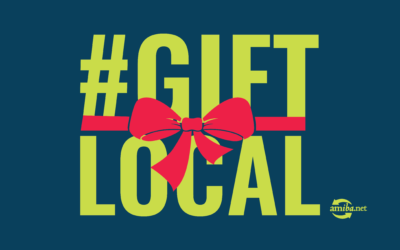2024 Partners
1st Priority Staffing
260Local, Advertising for locally-owned businesses
A Likely Story Bookstore
A Novel Idea Bookshop
A Seat at the Table Books, LLC
Alamogordo MainStreet
aloha keene
American Booksellers Association
Apple Yarns
Artika Tyner
Artisana Gallery
Athens-Clarke County Unified Government
B Local NYC
Beer Paws LLC
Black Ice Comics & Books
Boho Bahia
Book No Further
Book Society
Book Vault
Bookends: Literature & Libations
Books on Main
Broad Street Books
Brownsboro Hardware & Paint
Buffalo Street Books
BuyAlaska Program
Chapter2 Books
Children’s Book World Haverford
City of Camden
Comics & Gaming
Community Wealth Builders
Consciously
Cooperative Press
Coreander’s Children’s Bookshoppe
Curious Iguana
Deal Locally Inc.
DeColores Books & Gifts
Destination Hudson/Visitor Center
Downtown Florence (SC) Main Street Program
Dragonfly Books
Eat Local NOLA
Enjoy Rhinebeck
Eugene Made
Fables Books
Fenton’s Open Book
Ferndale Downtown Association
Finist and the Owl
Friends of Norwood Center
Grand Haven Main Street DDA
Greenway Arts Alliance
Growing Minds Bookstore
Havre de Grace Downtown Merchants Group
Helianthus Books
Hello. Media + Marketing
Hometown Country
HW Book Peddlers
ILSR
Ivy’s on Dearborn
Kentucky Main Street
Lafayette County Arena & Yoknapatawpha Arts Council
Lincoln Square Ravenswood Chamber of Commerce
Linden Tree Books
Little Sparrow Bookshop
Local First Ithaca
Local First La Plata
Local Return
Local Umbrella Media
Louisville Independent Business Alliance
Lowcountry Local First
MacArthur Books
MahoganyBooks
Mannequin Madness
Mecklenburg County Office of Economic Development
Monadnock Food Co-op
Myti
North La Crosse Business Association
Nuvision Business Group
NW Book Lovers
On The Side Books
Once Upon A Time Bookstore
Out of Eden Apothecary LLC
Ozone Cafe & Market
Pacific Northwest Booksellers Association
Paperbacks & Pieces
Pathways New Age Books & Gifts
People First Economy
Portland Buy Local
Positively Haywood
Prime of Weirton, Weirton Book Company
Prosper West San Antonio
Pyramid Books
Quail Ridge Books
Rangeley Lakes Region Chamber of Commerce
Rose Antique Mall
Running Industry Association
Rusted: a vintage market
SBN
Silver Horse
SmallBizSurvival.com
Southern Independent Booksellers Alliance
Spokane Independent Metro Business Alliance
St. Christopher’s Resale Shop
Storyteller
Studio Patty D
Sullivan Country Store
Sundial Books
Sweet Reads
TABIA
Taos County Chamber of Commerce
TEAM Jaffrey
The Book Readers Venue
The Book Witch
The Booktenders
The Cannery Marketplace
The Gift House
The King’s English Bookshop
The Local Crowd Monadnock
the marigold effect
The Nonbinarian Bookstore
The Novel Refuge
The Old Town Merchants Association
The Super Crowd, Inc., a public benefit corporation
The Treehouse Reading and Arts Center
The Wise Owl Books and Music
TheNetWorks Organization
tia book cellar
Triad Local FIrst
Tubby & Coo’s Traveling Book Shop
Under the Umbrella Bookstore
Urban Redeux
Vroman’s Bookstore & Book Soup Boosktore
Washington Wilkes Chamber of Commerce
Waterloo Bicycle Works
Waynesburg Prosperous & Beautiful
Weller Book Works
West Side Stories
White Mountain Independents
Whitehall Chamber of Commerce
Wilkes Community College Bookstore
Winchester Book Gallery
WordPlay
Resources
Gift Local: Holiday Gift Guides and Online Marketplaces
Make it easier to Gift Local and Shop Indie Local, create a simple online Gift Guide.
GivingTuesday
GivingTuesday unleashes the power of radical generosity. Celebrated on the Tuesday following...
2025 Choose Indie Local Campaigns
To give you a jump start on your marketing and outreach efforts, here are our 2025 Choose Indie Local Campaigns. Become a partner with us today!
This Fall 🍁 Shop Small
Why promote Shop Indie Local early this holiday season? Because more of us are shopping early for holiday gifts.
Why Cider Monday Matters
Celebrate Cider Monday to bring attention to the effects of online sales on your community.
Jólabókaflóð: A Bookworm’s Dream Holiday
Icelanders have a lovely tradition of gifting books to each other on December 24 and spending the rest of the evening reading and drinking hot chocolate. Season’s Readings!
This Halloween 🎃 Choose Indie Local
Halloween is a great time to Choose Indie Local. Total Halloween spending is expected to reach a record $12.2 billion, exceeding last year’s record of $10.6 billion.
Give a Gift to Your Community this Holiday Season and Shop Indie Local
Starting with our Thanksgiving meal, we’re purchasing more of our holiday gifts and celebration needs from our friends and neighbors — locally owned business owners.















